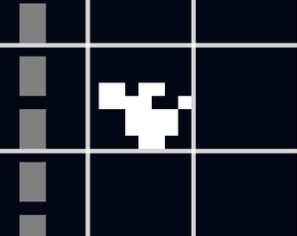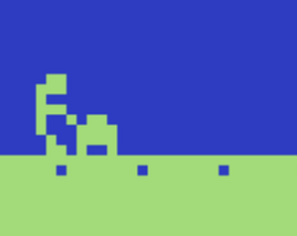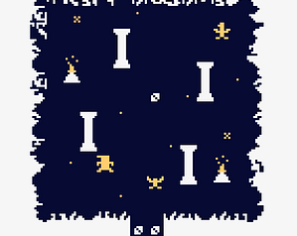Skein compiles a series of emotional fantasia performance games that faces the frustration that bodies can never truly be together. That there is always something in between.
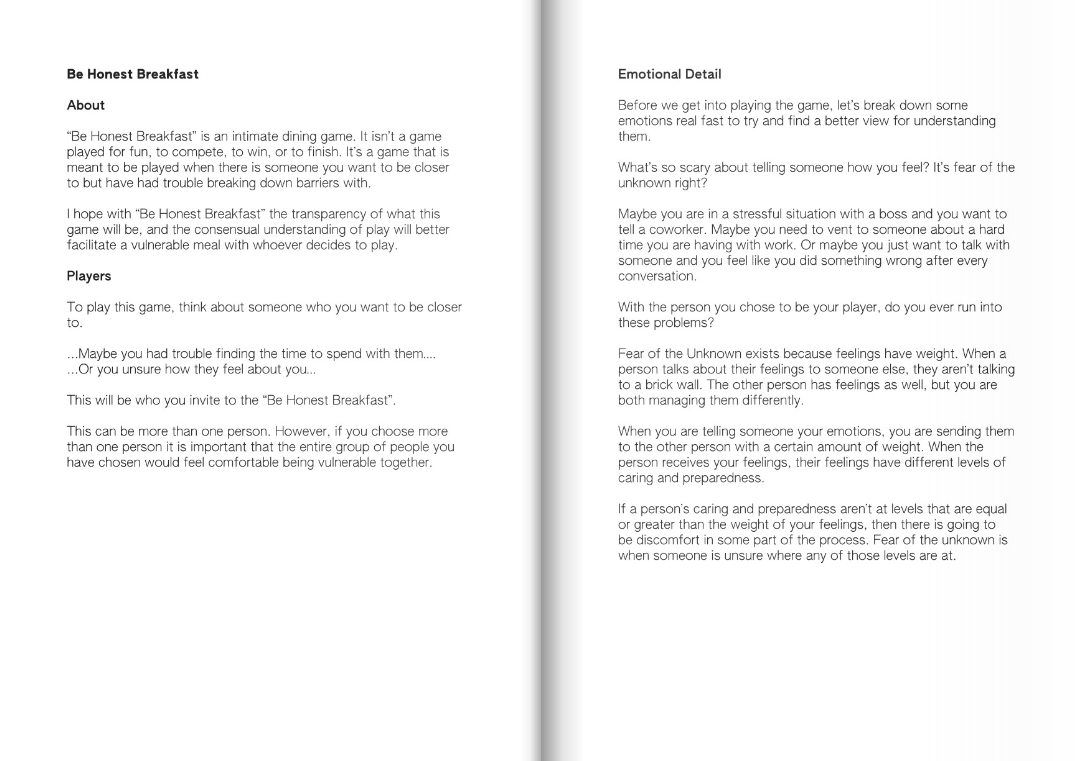
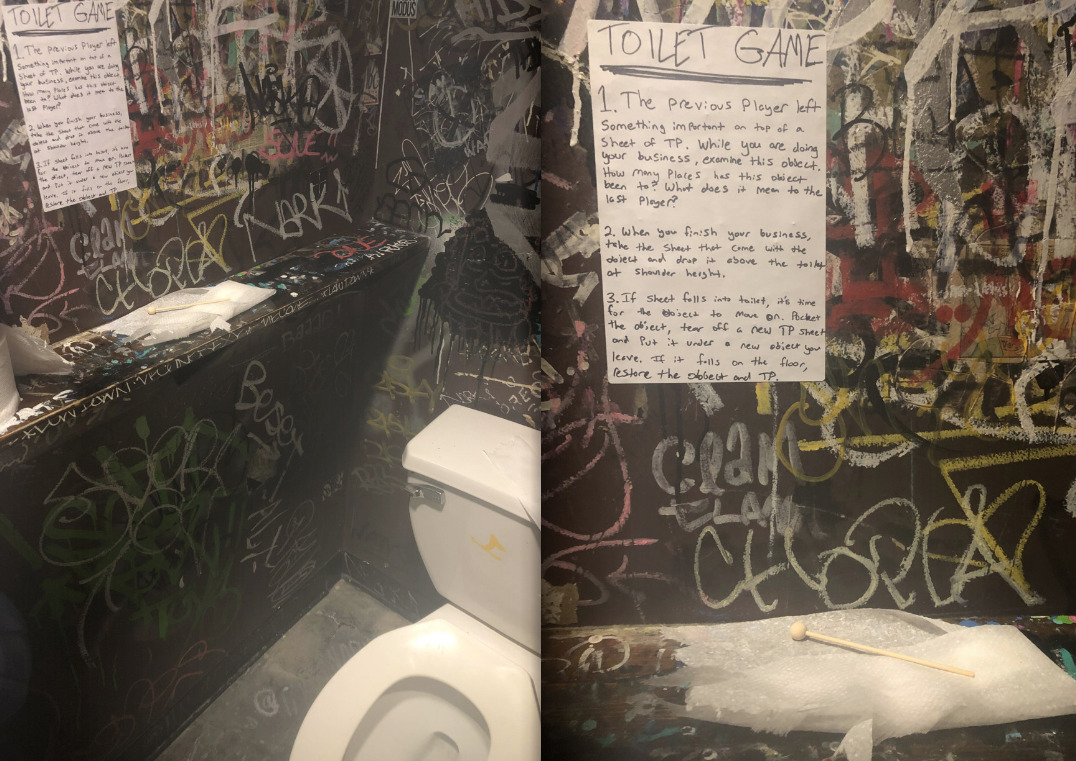
To Support Frida is a bitsy game focused around friendship support and sensitive conversations.
Sometimes friends just don't know what to say. Relationships maintain a casual level of understanding, you say hi, you hold conversations, you grab coffee. However, even at the closest levels, sometimes its just hard to know what a person wants to hear.
To Support Frida doesn't attempt to give a player the universal key to sensitive conversations. But it represents that those moments of awkwardness and frustration exist. And then we move on, keeping those moments with us.
You can play To Support Frida on itch.io
In October 2019 I ran a game jam/workshop at Hostos Community College to teach students how to use the bitsy game engine. In the months leading up to the workshop I made a series of experiments and games to reacquaint myself with the toolset. To Support Frida is the game I feel transcends that time period to exist as its own work.
What is lost when games are viewed primarily as the aesthetic form of systems? Within the past 3 years there has been an increase of analog games focusing on the emotions and vulnerability in relationships.
In October 2019 I presented this topic as a guest lecture for Colleen Macklin's "Gaming the System" class. The students had studies critical game studies concepts for most of the semester and were moving into design. With these slides I wanted to see how accepting students moving into designing games might think of these ideas.
This presentation and theory was made in collaboration with Brianna Shuttleworth.
Irrational Games is a series of two works: Game and Room
Irrational Games: Game is a conceptual game that asks players to consider how the act of viewing art, can be a game.
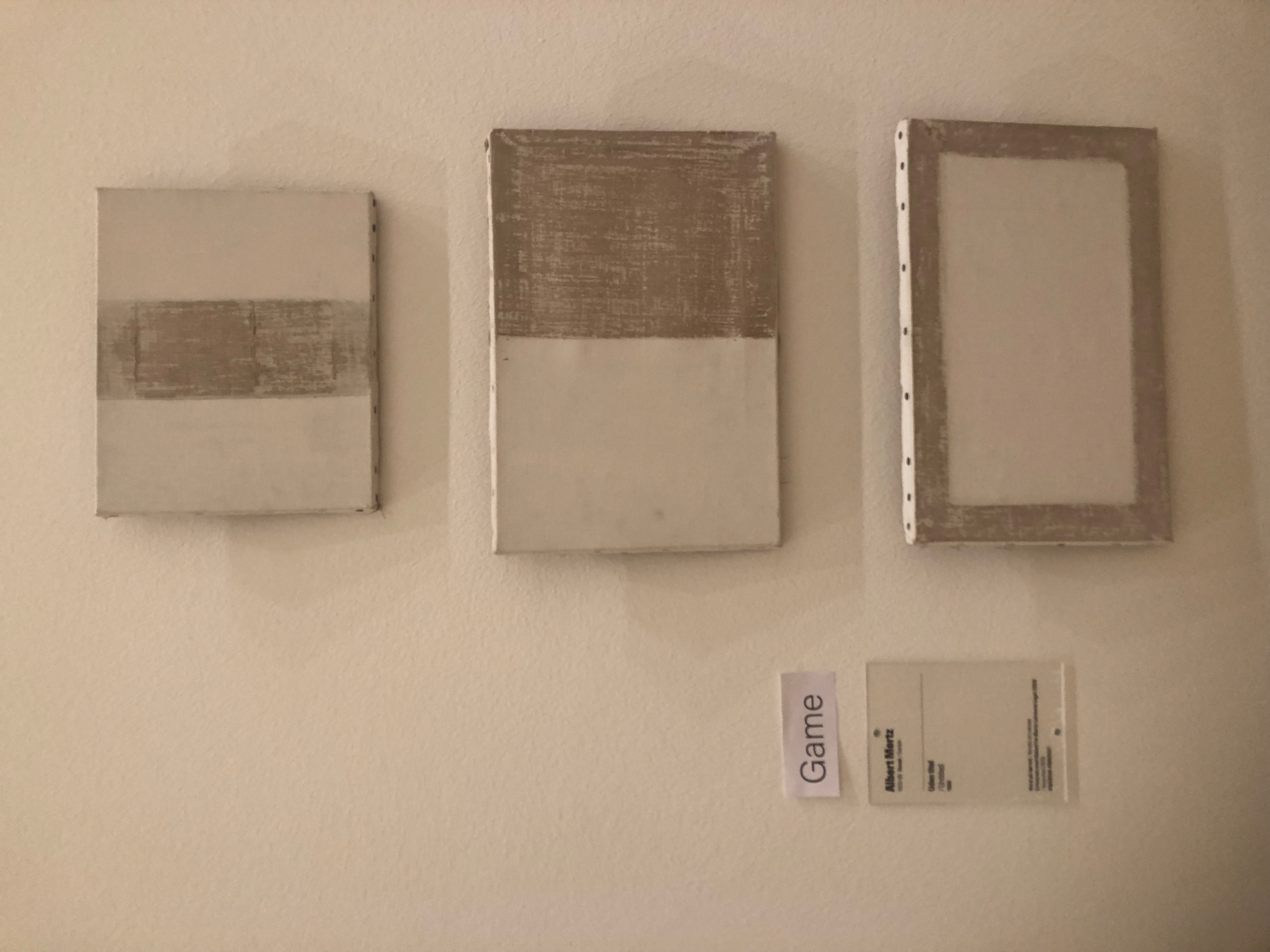
After finishing Game Changers
I still wasn't finished with my thinking about games as an artifact, and/or in a gallery space. In Game Changers
I was really thinking a lot about how games could be archived in a gallery setting, as artifacts. But in this piece I focused more about what we consider to be games, and how games can be viewed in a gallery setting.
During this time I was thinking about how play is really just a way that the player abstracts the world in order to digest content in a specific way. I believe that this is exactly what we do when we look at art. We forego much of the physicality of the art in order to consider what greater sensation the piece is trying to depict. This considers more than just canvas-based work, but all art pieces.
Irrational Games: Game asked visitors of The National Gallery of Denmark to consider how looking at the art around them was a type of game. This provoked conversations about art spaces, games, museums, and play.
Irrational Games: Game was shown at The National Gallery of Denmark in March.
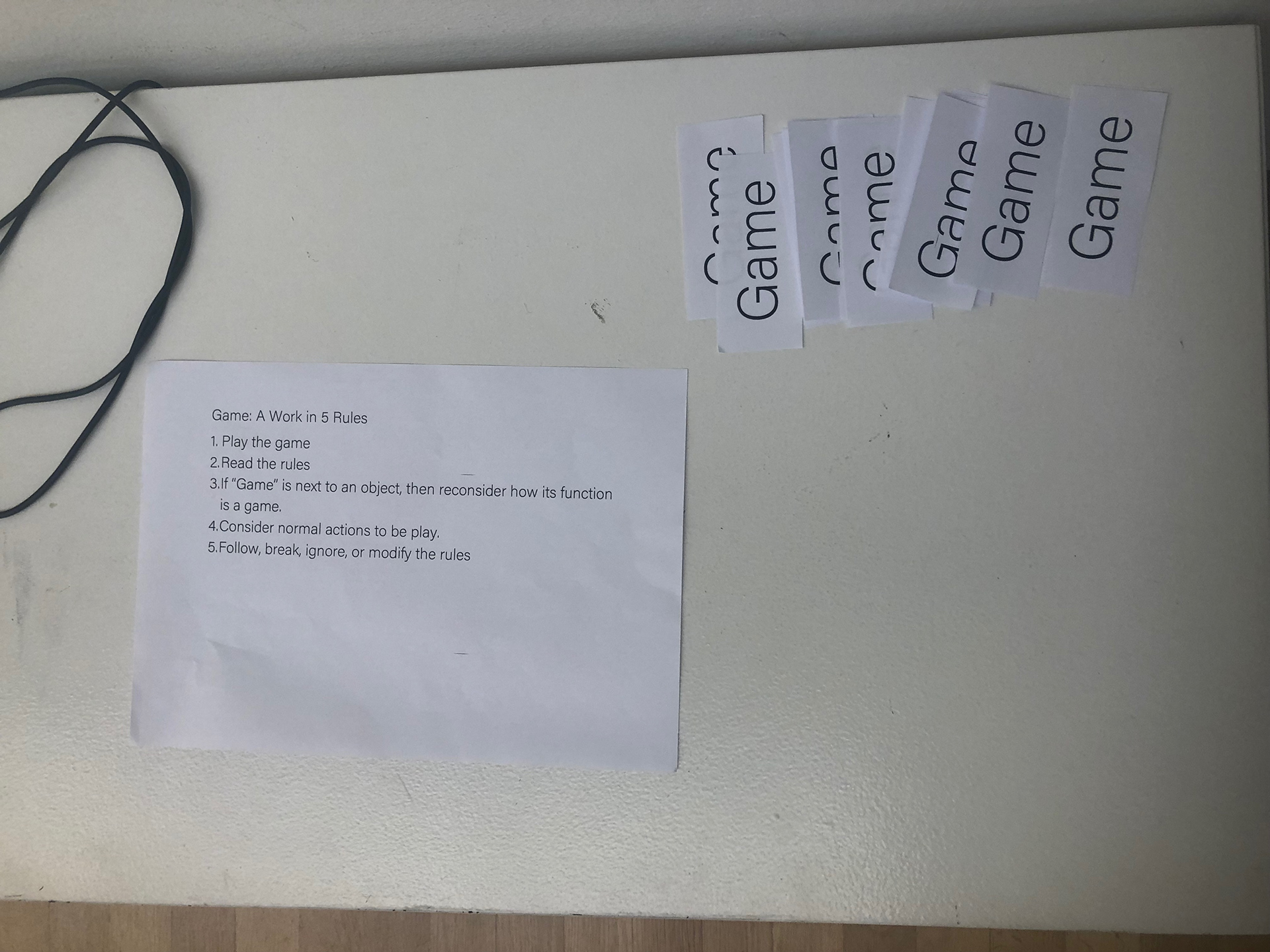
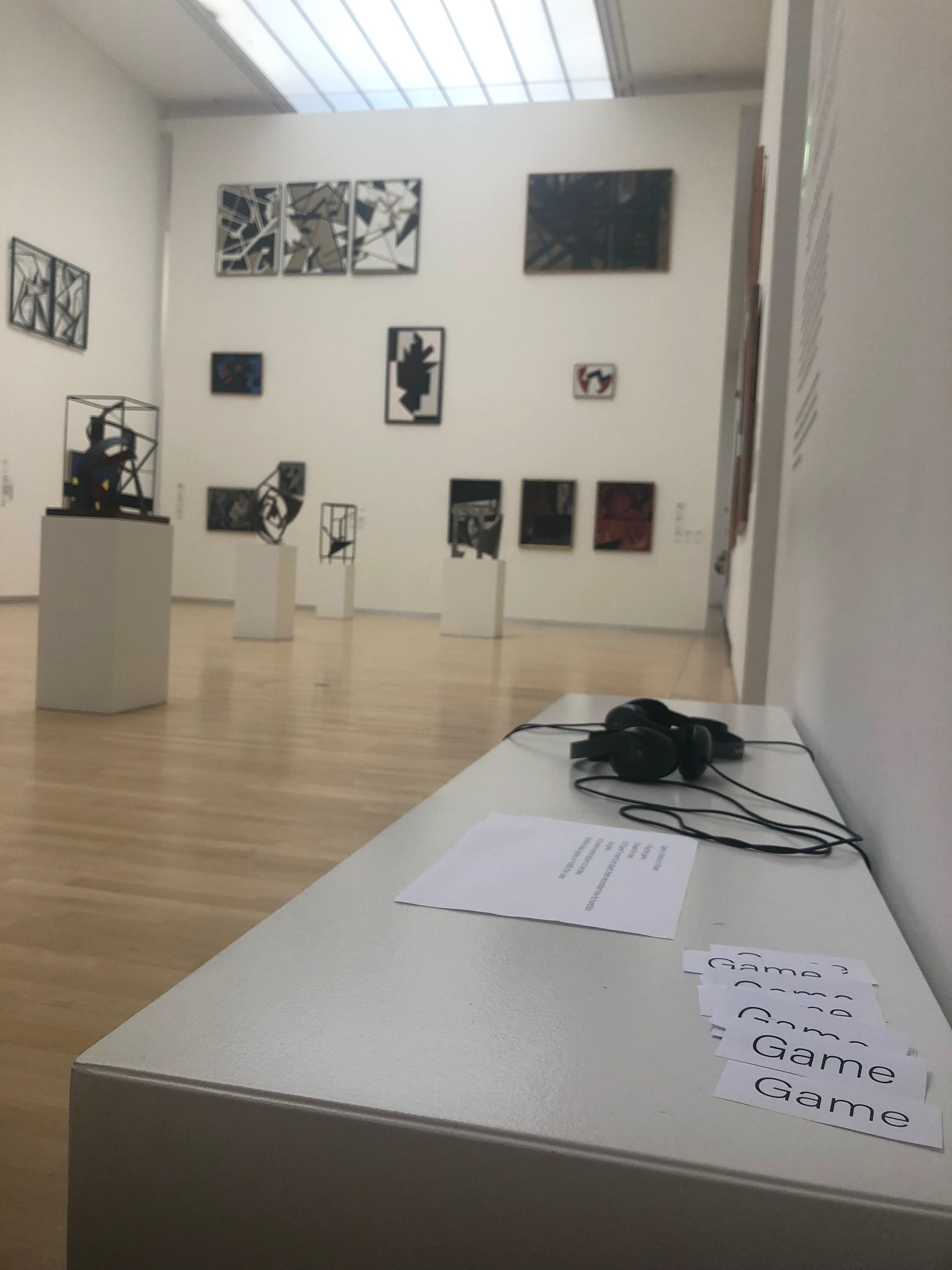
Irrational Games: Room is a conceptual game art exhibition that invites the viewer to play with the mundane, and consider everyday forms as a game.
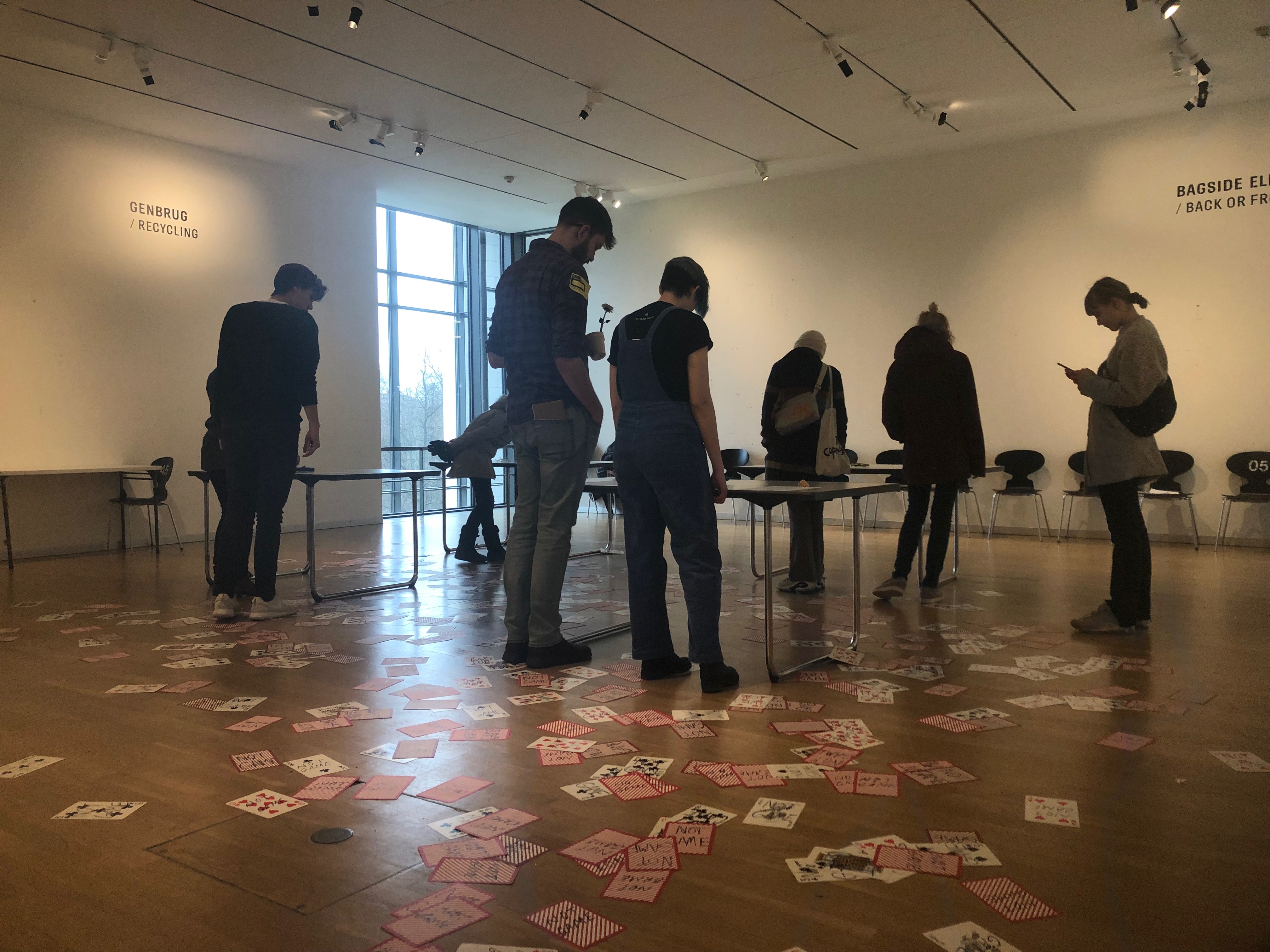
How can games and play be reframed to detach from the ways they are typically discussed and thought? This was part of my thinking in the making of Irrational Games: Room. If games can be considered objects that utilize play, an action that abstracts in order to make sense or approach objects, then could all objects be considered games?
Room was made after Irrational Games: Game, when I was considering how to better find ways for people to consider new forms of games. Instead of trying to ask people to just think of objects as a game, I wanted to help point out the rulesets that are internalized with the objects we normally interact with. This consisted of a total 12 objects with different rules.
During the showing of Room viewers discussed, interacted, played and thought around the objects. Some objects ended up in places even I could not have expected due to players trying to play a different form of the game I intended. However, I think I accomplished something interesting by provoking new forms of play in these moments that weren't typical (hanging a hanger somewhere weird, brushing someone else's teeth). Others thought through each object and came to me excitingly understanding what concepts of games & play I was trying to communicate.
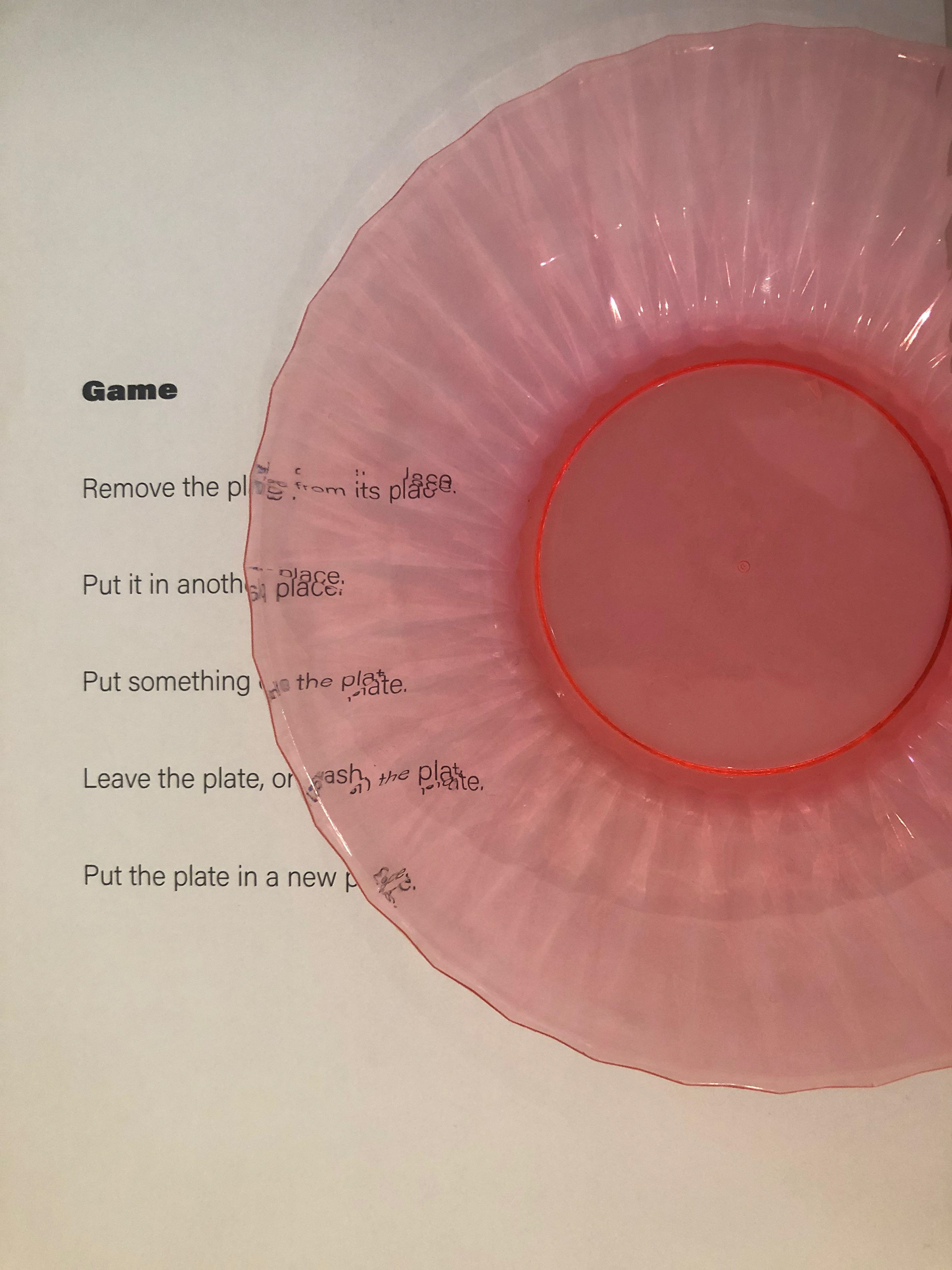
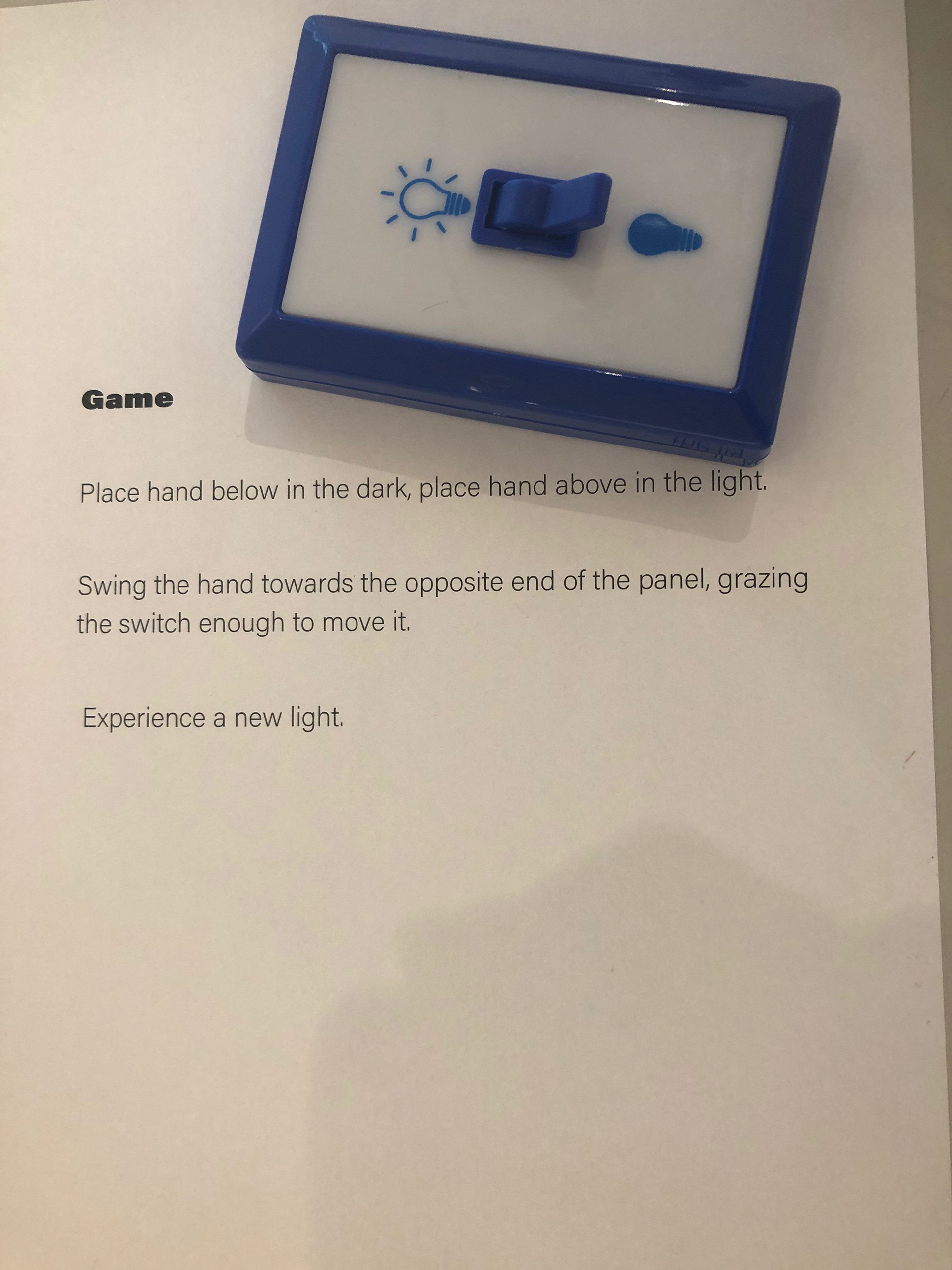
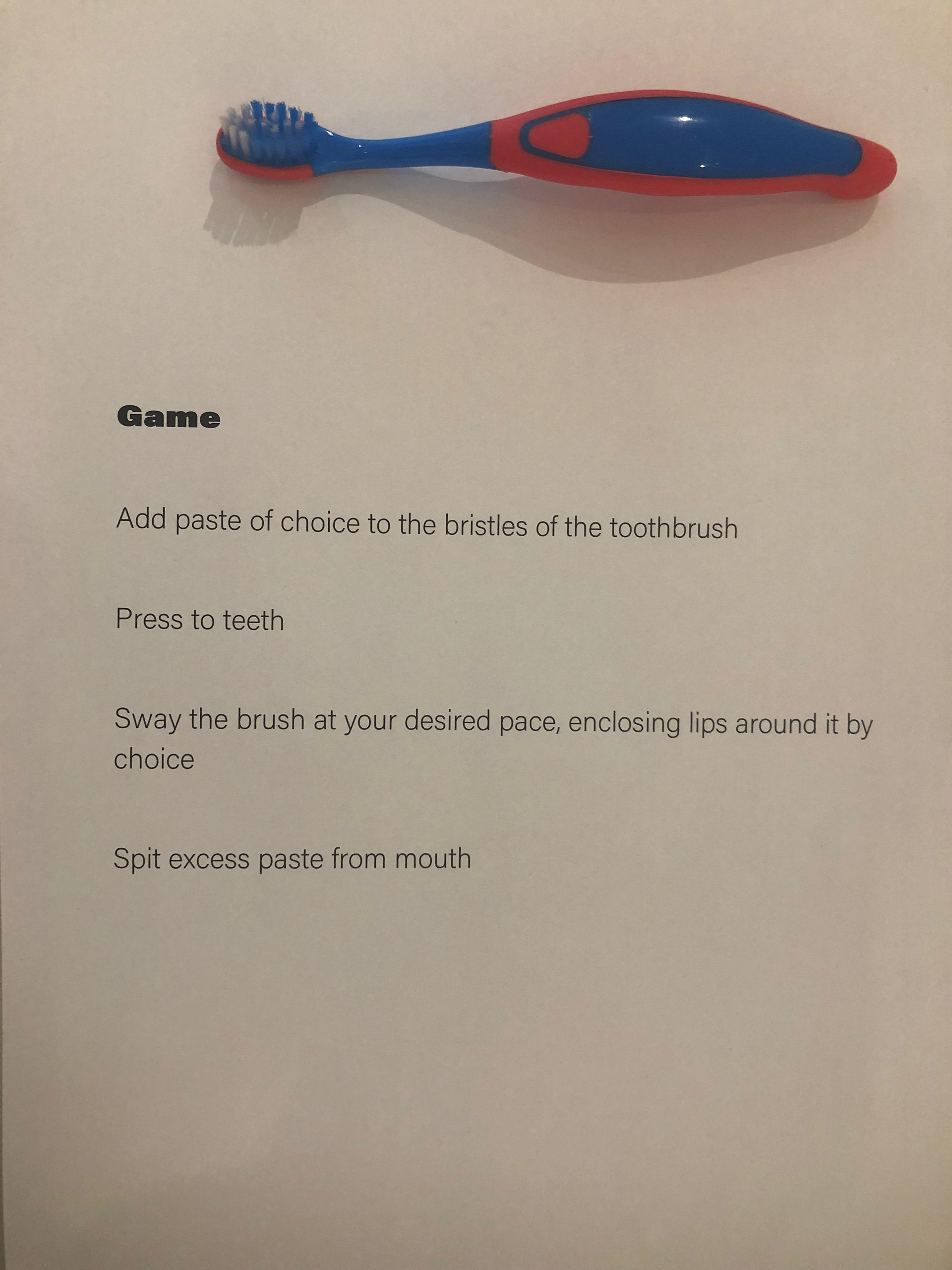
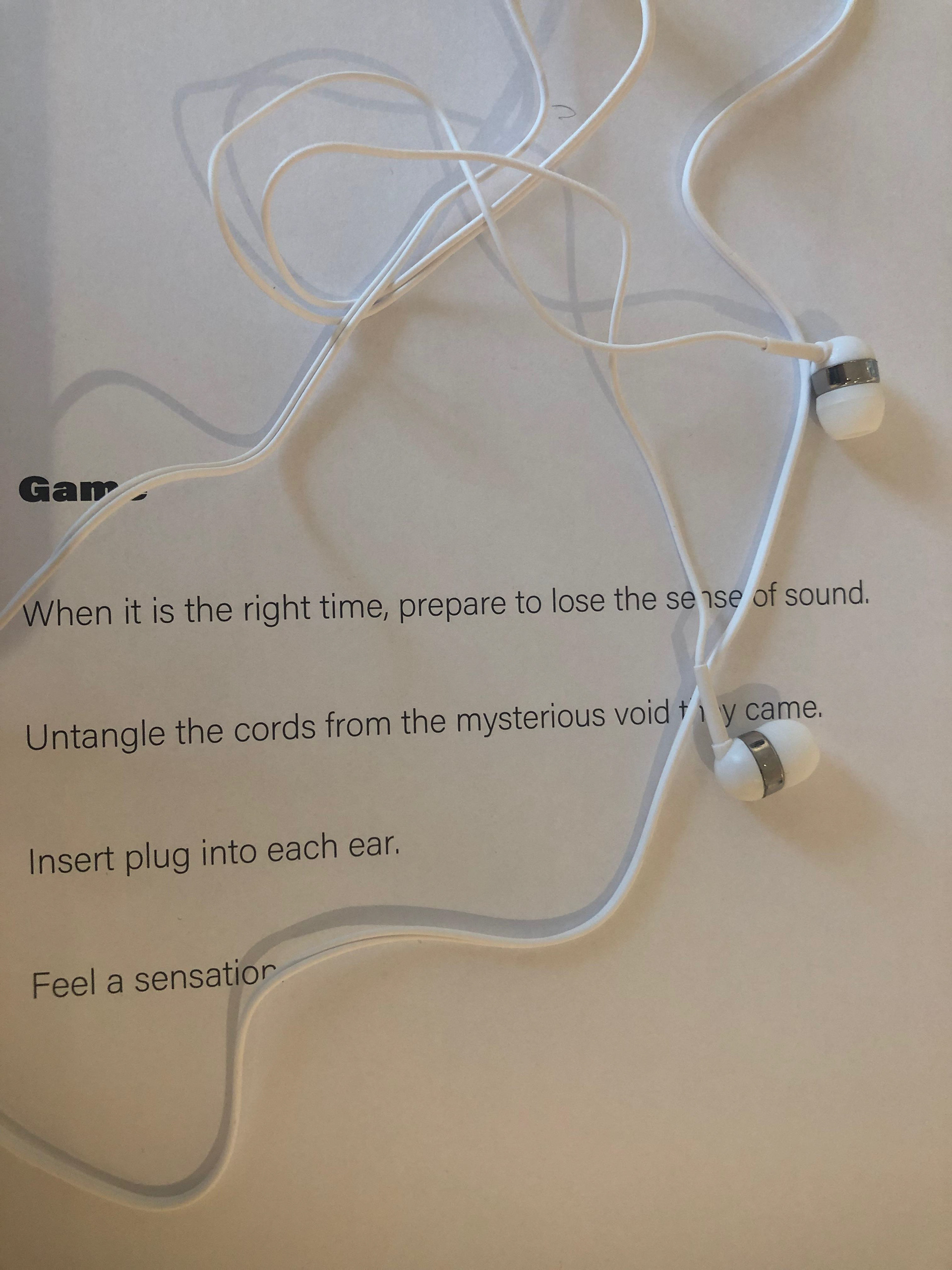
"1. A game after it has been played is one overlooked."
It has been assumed that the primary interfacing action with games is that of play. They are metaphorical engines
waiting for players to run them.
What if a game was never meant to be played? What if a game was meant only to be engaged with once it had already been completed?
This zine covers a series of games I made over the course of 2019 investigating what other forms games can exist as, and how games are designed to create certain relationship dynamics. This includes Irrational Games: Room and Irrational Games: Game.
Two of the big concepts in this zine are:
games of arousal
— Games that leverage knowledge about the player to manipulate them via their systems. interweaving games
— Games that create an affective relationship between the player and the designer.The third concept that comes from this zine is how post-play is a concept of games and play that can be considered more in games. While this proposes the idea for future inspiration, I also hoped for it to be a writing of precautions to take when considering how a game may touch the lives and relationships of players.
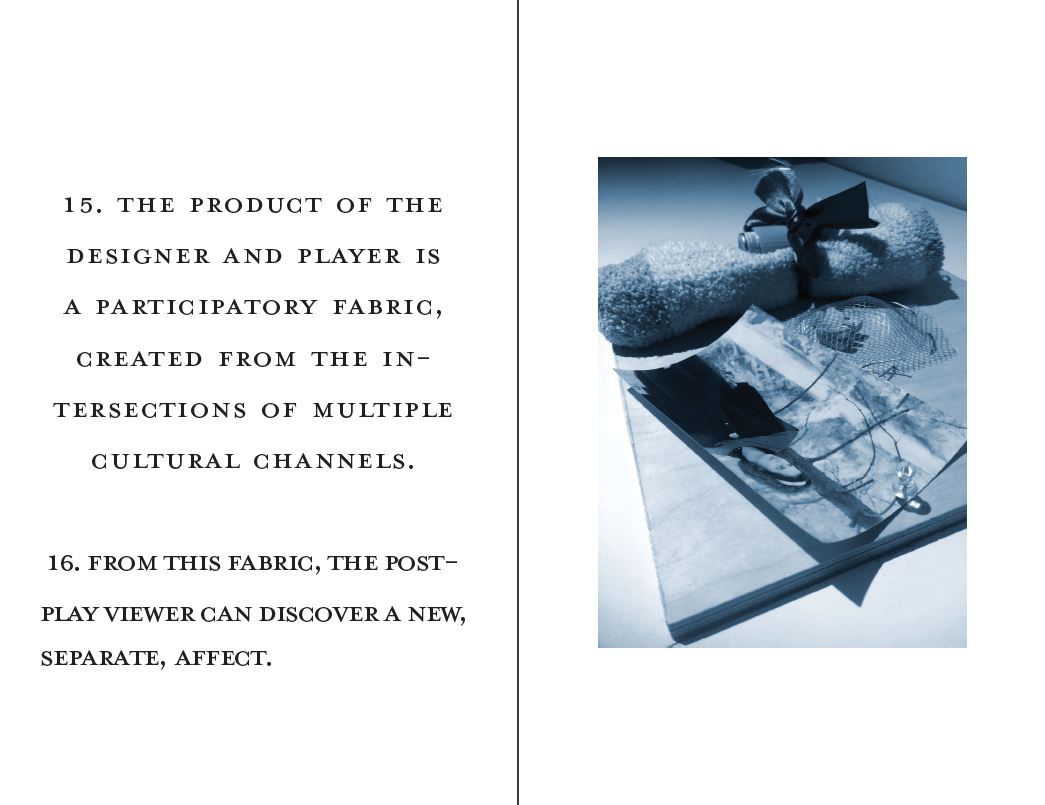
We have written to the department of justice to call for action only to be told there is nothing that the federal government will do. So I ask my fellow Southburians, what will we do?
Kettletowners is a multi-media roleplaying game designed to engage with history of 1930's small town America's resistance to Nazi Bund camps occupying parts of their community.
In May 2019 I worked with the United States Holocaust Memorial Museum to propose game design that would allow visitors to engage with America's Holocaust history through play. At the time they were exhibiting their show American and the Holocaust which we were prompted to design for. After multiple days of brainstorming and research my group decided to create a game based on a specific American story from the exhibit.
The game is set during the Southbury/Bund conflict of 1937 set in a townhall meeting to show how local, organized action can make change. To create a game based around a town hall, we decided to use phone polling software to see how people would drop in and out, and voice anonymous opinions.
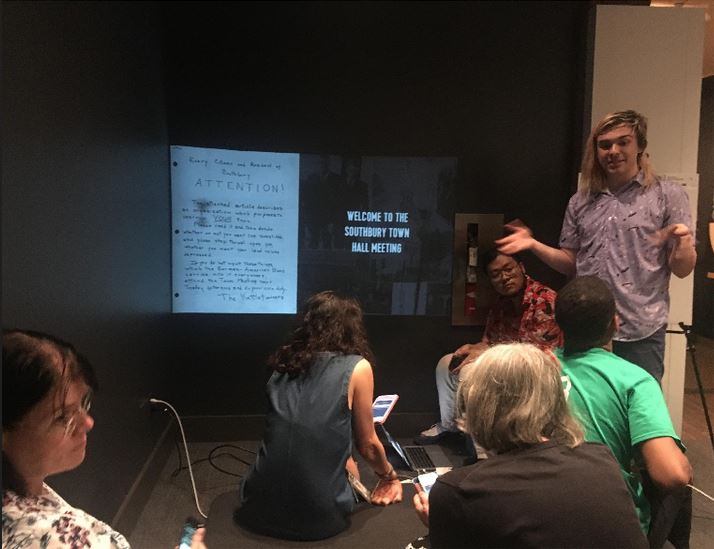
A session of Kettletowners runs with an orientation of the history that players will be addressing, an introduction from a town hall meeting moderator, and then a thrice-run cycle of issue, solution proposals, and voting.

Made in collaboration with Aliza Mahmood and Yufei Zhang during a multi-week residency at the United States Holocaust Memorial Museum.
The Hostos Bitsy Workbench was a bitsy workshop held at Hostos Community College on October 9th and continued as a game jam until October 13th.
You can find the game jam page with submissions on itch.io.
From my high school education all the way until my third university transfer I struggled to find why I had entered the educational system. I went from high school, to a community college, to another community college. Then it all changed when the games writer Austin Walker helped me discover that games could be a critical passion beyond my thinking of them. Ever since, I have felt frustrated that it took so long for the education system to help me find what was important to me.
In the long run I'd like to create programs and structures to give students what I never had. But, in the meantime while I don't have those resources and networks yet I will be creating and holding workshops at various education levels with hopes that these ideas and tools will help students find what they love.
I ran the first of these workshops at Hostos Community College teaching the game tool bitsy to any student at the school. This workshop covered the basics of the tool and tricks to help simplify the process of making.
After the workshop ended, I setup an itch.io game jam page and asked students to contribute their games when they were finished by the end of that weekend. The game jam page ended up with 9 different submissions out of the 13 students attended. I also created a game to participate with the community.
Most of the students that came to the workshop were already media students, so I hope that future iterations can focus on classrooms that don't already work with this medium.
